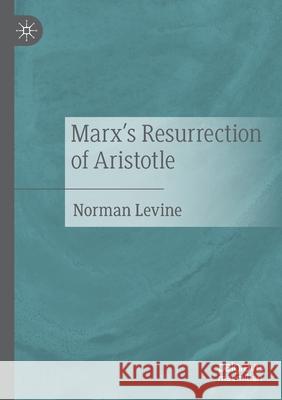Marx's Resurrection of Aristotle » książka
Marx's Resurrection of Aristotle
ISBN-13: 9783030570378 / Angielski / Miękka / 2022 / 370 str.
Marx's Resurrection of Aristotle
ISBN-13: 9783030570378 / Angielski / Miękka / 2022 / 370 str.
(netto: 460,04 VAT: 5%)
Najniższa cena z 30 dni: 462,63
ok. 16-18 dni roboczych.
Darmowa dostawa!
This book seeks to show how Karl Marx’s vision of communism was a continuation of Aristotle’s classical humanist philosophy. Challenging the Engelsian distortion of Marx, it presents a negation of previous interpretations of Marx which present him in materialist terms. Engels proposed a picture of the highest stage of communist society as an economic egalitarianism, a vision which became an axiom of Leninist-Stalinist-Soviet Communism. By contrast, here it is shown that Marx embraced the Aristotelian concept of “distributive justice”, of proportionate equality. Spanning the works of Marx, from his university education and doctoral dissertation on the differences between the Democritean and Epicurean philosophy of the atom, to the study of his Rheinische Zeitung period and the persistence of classical humanism in Marx’s defense of the freedom of the press, Levine skillfully reveals the gravitational pull between Marx and Aristotle.Showing how classical humanism is the dominant ethos in the communism of Marx, the book includes chapters on:
- Hegel as a transition point between Aristotle and Marx
- The links between Marx’s theory of labor and Aristotle’s idea of the constitutive subject located in The Politics
- How the local methodologies of Aristotle and Hegel provided Marx with the social methodologies by which to interpret the functioning of capitalism











